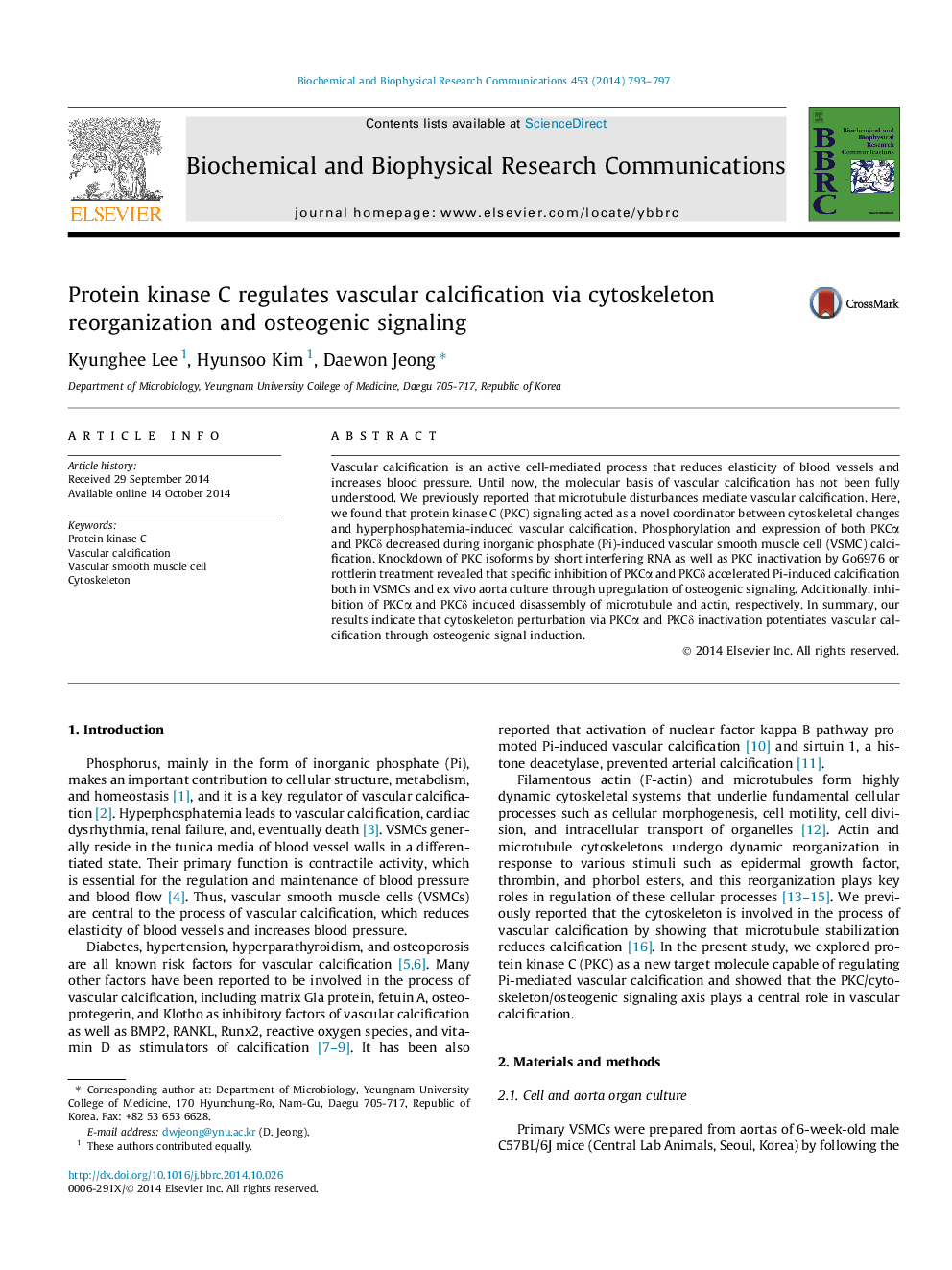| Article ID | Journal | Published Year | Pages | File Type |
|---|---|---|---|---|
| 10754249 | Biochemical and Biophysical Research Communications | 2014 | 5 Pages |
Abstract
Vascular calcification is an active cell-mediated process that reduces elasticity of blood vessels and increases blood pressure. Until now, the molecular basis of vascular calcification has not been fully understood. We previously reported that microtubule disturbances mediate vascular calcification. Here, we found that protein kinase C (PKC) signaling acted as a novel coordinator between cytoskeletal changes and hyperphosphatemia-induced vascular calcification. Phosphorylation and expression of both PKCα and PKCδ decreased during inorganic phosphate (Pi)-induced vascular smooth muscle cell (VSMC) calcification. Knockdown of PKC isoforms by short interfering RNA as well as PKC inactivation by Go6976 or rottlerin treatment revealed that specific inhibition of PKCα and PKCδ accelerated Pi-induced calcification both in VSMCs and ex vivo aorta culture through upregulation of osteogenic signaling. Additionally, inhibition of PKCα and PKCδ induced disassembly of microtubule and actin, respectively. In summary, our results indicate that cytoskeleton perturbation via PKCα and PKCδ inactivation potentiates vascular calcification through osteogenic signal induction.
Related Topics
Life Sciences
Biochemistry, Genetics and Molecular Biology
Biochemistry
Authors
Kyunghee Lee, Hyunsoo Kim, Daewon Jeong,
